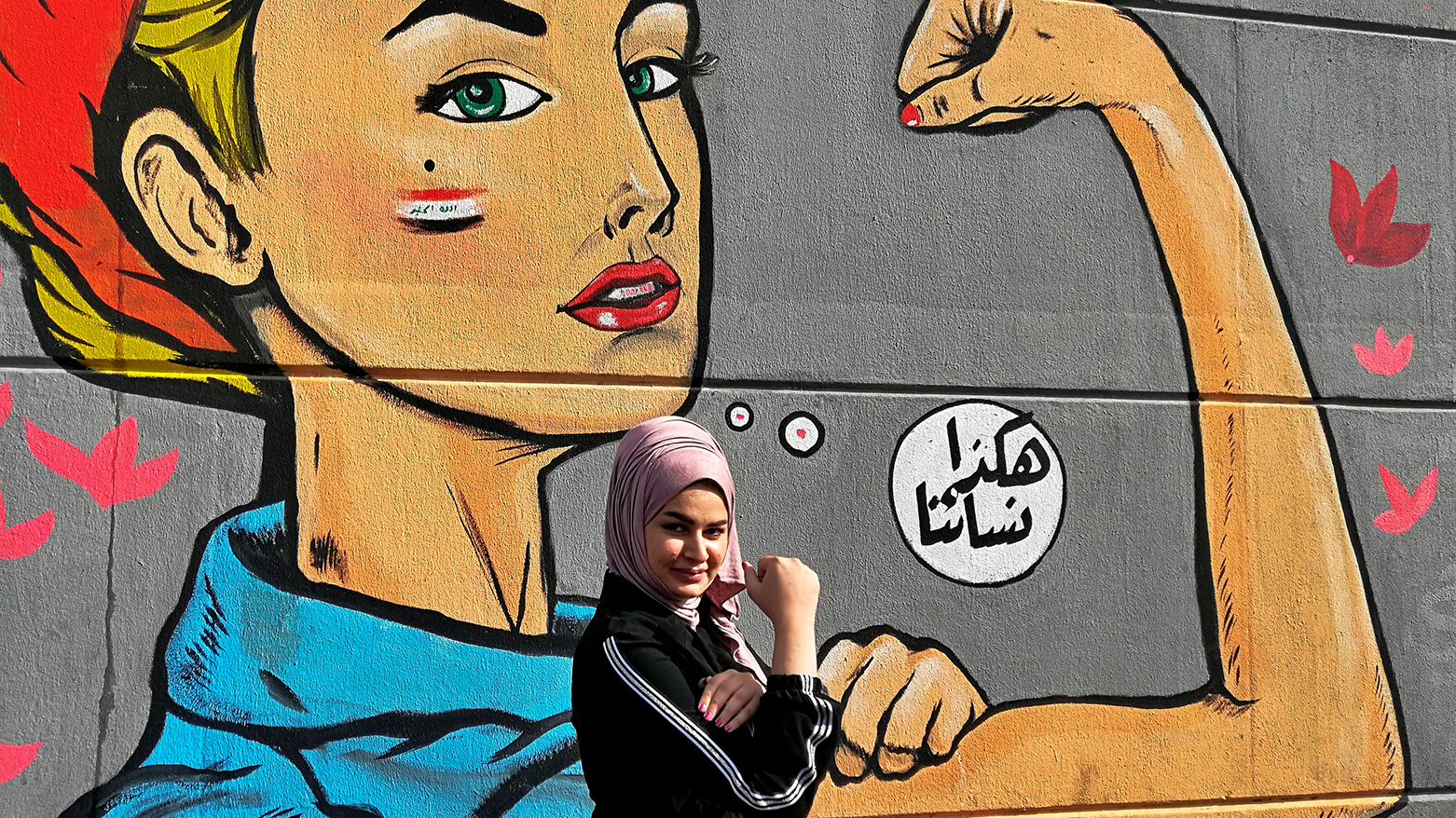‘Half of Society is Idle’: Female Unemployment in Iraq a Silent Crisis Threatening Social Explosion
Female unemployment in Iraq is a 'silent crisis' at double the rate of men, threatening a 'social explosion' amid official inaction and social barriers.

ERBIL (Kurdistan24) - While the Iraqi government is pointing to a relative decline in the country's overall unemployment rate as a sign of an improving labor market, a deeper and more troubling reality lies just beneath the surface: a persistent and escalating crisis of female unemployment that has left women jobless at double the rate of men.
This stark disparity, confirmed by official figures but met with what critics describe as an alarming "official silence," is being labeled by academics and feminist organizations as a "silent crisis" that threatens to trigger a "social explosion."
As thousands of educated and ambitious young women graduate from universities each year only to be met with a labor market that will not absorb them, a potent cocktail of frustration, dependency, and a loss of purpose is brewing, a crisis that experts warn is not just a personal loss for these women, but a profound and damaging loss for all of Iraqi society.
The latest official statistics, while positive on the surface, reveal the depth of the gender gap. In a recent press statement, Abdul Zahra al-Hindawi, the spokesperson for the Ministry of Planning, announced that general unemployment rates in Iraq had declined from 16.5% in 2022 to 13% at the beginning of 2025.
However, as reported by the Iraqi news website Central News, al-Hindawi also pointed to the significant disparity between the sexes. He noted that "the unemployment rate among women reaches about 18%, compared to 9 to 10% among men," a gap that is "almost double."
While the official statement acknowledged that there are "social reasons that prevent women from entering the labor market," it was, according to the report, "devoid of any clear vision to address this gap, or strategies that would enable women to play their full role in the economy."
This lack of a concrete government plan to tackle what is effectively the idleness of half of society has drawn sharp criticism from those on the front lines of the issue. Feminist organizations and academics argue that female unemployment in Iraq is not just an abstract economic figure but a festering social crisis with serious and immediate repercussions for the family and the wider community. Feminist activist Hanan al-Zaidi explained the cascading negative effects of this widespread joblessness.
"The lack of job opportunities for women leads to a delay in the age of marriage, and increases periods of financial and social dependence on the family," she said, a situation which "perpetuates weakness and fragility among a large segment of young women."
Al-Zaidi stressed that the consequences are not merely economic but also deeply psychological, leading to widespread "frustration, isolation, and a loss of a sense of purpose." Her conclusion was a stark warning about the societal cost of this marginalization: "A woman's exit from the circle of work does not only mean a personal loss for her, but a loss for the entire society."
This view is strongly supported by academic experts. Dr. Reza al-Azzawi, a sociologist, described female unemployment as a "silent crisis" that is simply not receiving the attention it deserves from either the government or Iraqi society at large.
He identified the root of the problem as a "deep-rooted traditional view in Iraq that sees women's work as secondary and unnecessary," a cultural bias that is directly reflected in the "weakness of government policies towards employing women."
The human cost of this neglect is immense. Iraq is effectively squandering a vast and growing pool of human capital, a resource it desperately needs to overcome its chronic developmental crises. "We lose academic energies and health and educational skills every year, simply because we do not provide women with equal opportunities in work," Dr. al-Azzawi stated. "Universities graduate thousands of young women annually, but the labor market does not absorb them."
He warned that this cavernous gap between the ambition of educated women and the reality of their limited opportunities is leading to a dangerous "erosion of trust in the educational and social system," and is deepening the already profound sense of marginalization felt by many Iraqi women.
The report by Central News frames this situation as a series of pressing and unanswered questions for the Iraqi government. Are there any real, substantive plans to address the worsening gender gap in employment? What specific policies are being developed to actively integrate women into the labor market? And why are special programs not being formulated to support working women and help them break the powerful social restrictions that are often imposed upon them?
The continued failure to even address these fundamental questions, the report warns, "means that half of society will remain outside the circle of production, which weakens the economy and exacerbates the social challenges in a country that is already going through chronic crises in development and social justice."
Ultimately, the crisis of female unemployment in Iraq is being presented not as a niche feminist or human rights issue, but as a "developmental and societal issue of the first order." To continue ignoring it is to accept a continuous and debilitating loss of human capital, a deepening of the gender gap that undermines social cohesion, and the perpetuation of an unjust and inefficient economic model.
For a nation struggling to rebuild and achieve stability, the message from its own experts is clear: no country can hope to prosper when half of its population is left behind.